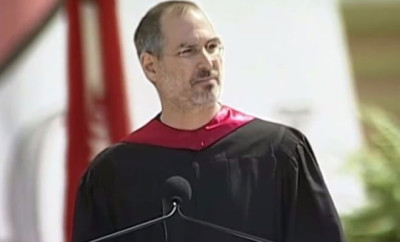
The Top 10 Emotionally-Intelligent Fortune 500 CEOs
I entered Stanford Business School twenty-nine years ago as a naive twenty-one year old, the youngest in my class. One of my classmates immediately sized me up, asking “So, what did you specialize in before coming to get your MBA?” I said, “Growing up.” Not satisfied with my answer, he continued, “No, seriously, what’s your expertise and why’d they let you in here?” I paused and sheepishly said something absolutely true, but somewhat blasphemous for the times, “I guess I understand people well. My boss this summer told me my expertise is how I use my emotions to my advantage.” My classmate couldn’t stop laughing and he was on to glad-handing the next person because, clearly, I was a loser.
A decade and a half later Daniel Goleman’s Emotional Intelligence (EI) theory was introduced to business schools around the world. But, this idea –still radioactive to some – that the dominant trait in effective leadership comes from EI (also called EQ), not IQ or the level of one’s experience or depth of their resume, took a while to become commonplace language amongst mainstream business folks. But, while there’s still no hard metric for EI , conventional wisdom now favors this fluid ability as compared to the fixed capacity of one’s brainpower. When I graduated from biz school, I thought I had to be superhuman if I were ever to be a successful CEO. But after two dozen years of being a CEO, I’ve come to learn that the best leaders aren’t comic strip heroes, they’re just super humans who have developed the four capacities that Goleman outlined for EI: self-awareness, self-management, social awareness, and relationship management. As Goleman recently told me, “EI includes a broad spectrum of competencies, and no leader is A+ across the board – even the best have room to improve.”
I’m often asked which business leaders are the ultimate examples of Emotional Intelligence, so I decided to do a little research. Limiting my search to only Fortune 500 CEO’s of American companies (so Oprah doesn’t qualify), I started asking everyone I knew who they most admired as a role model for EI and then I talked with employees in these CEO’s companies and did a deep dive into speeches they’d given and articles that had been written about them. And, of course, I took a look at the performance of their companies while they’ve been the “emotional thermostat” for their organization. So, drum roll please, here’s the first annual Top 10 Chief Emotions Officers in the U.S. (in alphabetical order):
- Jeff Bezos (Amazon): With his quirky laugh and self-deprecating style, Bezos doesn’t sound like a Fortune 500 CEO and that’s probably to his benefit. His obsession with the hearts and minds of his customers and his long-term perspective on relationships (and business strategy) are legendary, as was his YouTube announcement of Amazon’s Zappos acquisition in 2009.
- Warren Buffett (Berkshire Hathaway): “Success in investing doesn’t correlate with IQ once you’re above the level of 25. Once you have ordinary intelligence, what you need is the temperament to control the urges that get other people into trouble investing.” Intensely loyal and relationship-driven, he asks his CEO’s to run their companies as if they were to own them 100 years from now.
- Ursula Burns (Xerox): In tandem with Anne Mulcahy who moved up to Chair, Burns transitioned to CEO as the first woman-to-woman CEO leadership transition in a Fortune 500 company in what has become a pivotal case study in organizational development.. Direct, yet respectful, her assertiveness is matched by a sense of mission that inspires her employees.
- Jamie Dimon (JP Morgan Chase): At Harvard Business School, Dimon said: “You all know about IQ and EQ. Your IQ’s are all high enough for you to be very successful, but where people often fall short is on the EQ. It’s something you develop over time. A lot of management skills are EQ, because management is all about how people function.” Read “Last Man Standing” about him.
- John Donahoe (eBay): Donahoe inherited a difficult situation from Meg Whitman with the need to truly alter the company’s business strategy. As a role model for Jim Collins’ Level 5 (humility & ambition) and Bill George’s “True North” leaders, Donahoe’s disciplined self-awareness and his listening ability have created a deeply loyal team and a healthy, evolving culture.
- Larry Fink (BlackRock): Called “psychologically astute” in a Vanity Fair feature article, Fink created the largest money-management firm in the world based upon self-reflection, teamwork & direct communication. His senior leadership team embraces EI seminars to improve their skills.
- Alan Mulally (Ford): Walk around Ford’s corporate campus and you will see office cubes featuring handwritten notes that Mulally has sent to employees…praising their work. Great interpersonal skills and a “Clintonesque” ability to make you feel like you’re the only one in the room when you’re in a conversation with him.
- Indra Nooyi (Pepsi): Nooyi is a conscious capitalist whose “performance with purpose” agenda has helped move employees from having a job to living a calling. She is acutely aware that being a woman of color means she may receive more attention and scrutiny, but she still projects her personality without reservation – whether it’s singing in the hallways or walking barefoot in the office. She wrote the parents of 29 senior Pepsi execs to tell them what great kids they’d raised.
- Howard Schultz (Starbucks): He says that the main reason he came back was “love”: for the company and its people. Very dedicated to generous health care benefits – inspired by his father losing his health insurance when Schultz was a kid.
- Kent Thiry (DaVita): Leaders with high EI/EQ create culture-driven organizations that perform at their peak due to the power of mission and teamwork. Thiry took over a demoralized kidney dialysis center company that was almost out of business and, with a passionate spirit, created nearly 44% annual growth in earnings per share in the past decade, 6th highest of any Fortune 500 company.
There are many honorable mentions from Jim Sinegal at Costco to Gary Kelly at Southwest Airlines to Andrea Jung at Avon or John Mackey at Whole Foods Markets. As for the Top 10, there are some obvious choices as well as some more obscure CEO’s. But, before you start throwing stones at these business leaders, don’t forget Daniel Goleman’s premise that we’re all works-in-progress. What tends to set these people apart is a level of disciplined self-awareness that helps them develop as leaders faster than the average CEO, as well as knowing how to attract a complimentary team around them.







